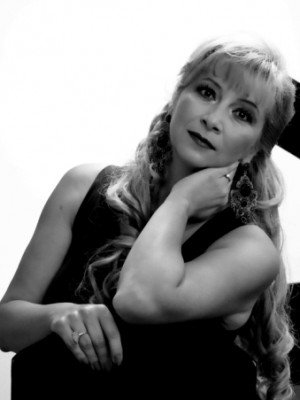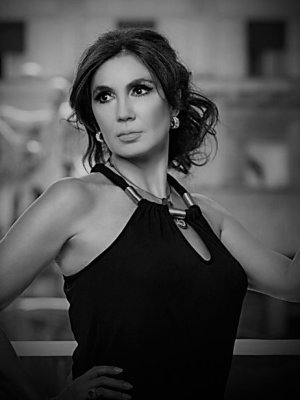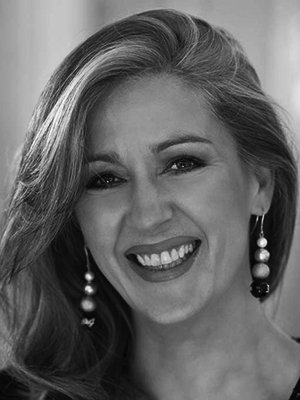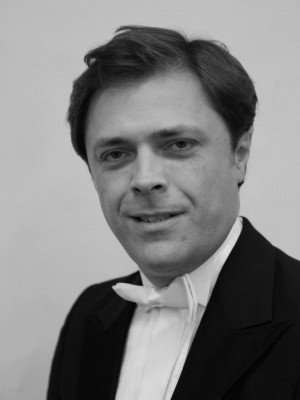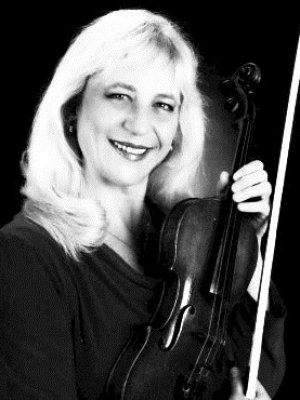Eugene Onegin
opera by P. I. Tchaikovsky

Libretto was written by the composer in cooperation with Konstantin Shilovsky after Aleksandar Pushkin’s novel in verse by the same name. The first performance took place in Moscow on 29th March 1897. The first performance in Belgrade took place on 8th May 1920. Opera Eugene Onegin by Pyotr Ilyich Tchaikovsky is considered the most popular Russian opera in Russia and worldwide. It was the second opera produced by the National Theatre’s Opera, right after Pucini’s Madame Butterfly, with which the Opera started its professional activities in 1920. Tchaikovsky was looking for a suitable story or a finished libretto for his next opera. Lavrovskaya, a well-known singer, talked to him about Pushkin’s novel in verse Eugene Onegin in April 1877. “I need a plot with one basic motif, such as love, honour, jealousy, love for the country,” wrote Tchaikovsky, “I was enchanted when I read the novel.” (…) In Tchaikovsky’s musical interpretation, the characters received a new, fourth dimension, and became our close acquaintances, or should we say friends. We empathize with them and follow their every breath, glance and move. Tchaikovsky gave life to the circumstances and the time of the plot from the very opening of the overture. He portrays both the tranquillity of a village and the glamour of the capital city. The nature also has its gentle sound representation. However, the opera’s main strength is the psychological complexity of characters.
FROM THE HISTORY OF THE NATIONAL THEATRE
The Belgrade audience saw the classical piece by the Russian master for the first time on 1 June 1911, when an Opera company from Zagreb performed Eugene Onegin during their fifteen day tour. Immediately after establishment of Belgrade Opera as a professional company and after its first premiere (Madame Butterfly, 11 February 1920, in Manjež – today’s Yugoslav Drama Theatre), the company produced Eugene Onegin and opened it on 8th May 1920, also in Manjež, because the National Theatre’s building was severely damanged during the First World War. M. Zackoj directed the production and Stanislav Binički conducted in it. Nadežda Viren-Reymonova interpreted Tatyana; a former member of Moscow Opera, Zimina, interpreted the role of Olga, while baritone Vernon interpreted Onegin. The cast included a number of soloists who remained key performers of the Belgrade Opera for years to follow. Evgenija Pinterović interpreted nanny Filippyevna; Evgenije Marijašec, a bass, interpreted Prince Gremin and Don Bartolo Tucaković interpreted Zaretski. The production was performed 9 times until the end of the season; in the following season, the production had 14 performances and remained on the repertory until 1939. Pavle Holodkov started interpreting the title role during the second season and continued interpreting it for three decades! The production had a total of 109 performances. Eugene Onegin was the first performance of the National Theatre’s Opera after the liberation in the Second World War. It was performed on 17th February 1945, when Oskar Danon, a young Director of the Opera, had his debut at the conductor’s stand and who would continue to conduct this opera with special fondness for it. Yuri Rakitin directed it; the sets were designed after ideas by Vladimir Zagorodnjuk and the costumes were designed by Milica Babić. Inka Đukić interpreted Tatyana, Božica Sarvan was in the role of Olga, Evgenija Pinterović interpreted Filippyevna, Pavle Holodkov interpreted Onegin, Aleksandar Marinković was in the role of Lensky, Branko Pivnički was Prince Gremin, Dragi Petrović interpreted Triquet. The classic-realistic production had numerous performances and many soloists performed in main roles. New premiere in a transparent set designed by Miomir Denić and costumes designed by Mira Glišić took place on 7 March 1960, on 50th celebration of the Women’s Day (8th March). Oskar Danon conducted again and a guest from Wiesbaden, Friedrich Schram, directed the production; the director showed exquisite dedication and perfection in his work with the soloists who had to denounce their experience in opera interpretation for this production! Đurđevka Čakarević interpreted Larina, Melanija Bugarinović was Filippyevna, Dušan Popović and Krsta Krstić interpreted Onegin, Radmila Bakočević and Valeria Hejbalova interpreted the role of Tatyana, Drago Starc was Lensky and Miroslav Čangalović was Prince Gremin. The Opera Company toured many cities with this production (Wiesbaden in 1960, Lausanne in 1960, Venice in 1961, Cairo in 1961, Cairo in 1962, Alexandria in 1962, Lausanne in 1969, Lausanne in 1973) and we can freely state that the Belgrade production of Onegin paved the road for Russian classical opera. Among numerous guest artists who performed in Belgrade in this production, we must name Galina Vishnevskaya, Yuri Mazurok and Vladimir Atlantov. Bolshoi Theatre from Moscow also performed Eugene Onegin in the Sava Centre during their tour to Belgrade. Onegin remained on the Opera repertory as a significant counterbalance to epic Russian operas such as Boris Godunov and Khovanshchina, as well as to the tragic The Queen of Spades. Tchaikovsky’s lyric and inspiration in every aria, as well as the orchestral skill of the author were very suitable for artistic inclinations of our Opera Company.
Konstantin Vinaver
Premiere performance
Premiere, 12th June 1999 / Main Stage
Conductor Bojan Suđić
Stage Director Radoslav Zlatan Dorić
Set Designer Aleksandar Zlatović
Costume Designer Ljiljana Orlić
Choreographer Vladimir Logunov
Premiere Cast:
Tatyana Višnja Pavlović Drakulić / Jasmina Trumbetaš Petrović
Onegin Vladimir Andrić / Goran Gligorić
Olga Nataša Jović / Dragana Jugović del Monaco
Lensky Radivoje Simić / Dejan Maksimović
Larina Ilona Kantor / Aleksandra Angelov
Filippyevna Dubravka Filipović / Olga Savović
Gremin Ivan Tomašev / Nenad Jakovljević
Triquet Igor Matvejev / Radmilo Petrović
Rotni Aleksandar Stamatović
Zaretsky Velizar Maksimović / Branislav Kosanić
Solo Tenor Ljubodrag Begović
The Choir, Orchestra and Ballet ensemble of the National Theatre in Belgrade take part in the performance.
Concertmaster Edit Makedonska
Choir Leader Đorđe Stanković
Stage music lead by Đorđe Stanković
Assistant Director and Screenplay Writer Vesna Petrović
Music Associates Srđan Jaraković, Nevena Živković
Music Associate Paša Musić
Russian Language Speech Instructor Marina Petković
Prompter Silvija Pec
Translation and caption Konstantin Carina
Organiser Maša Milanović

